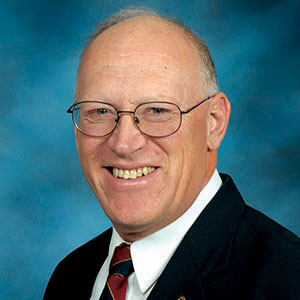Kansas Profile – Now That’s Rural: Dixie Pachta, Rose Creek Suds
Jan. 18, 2023
By Ron Wilson, director of the Huck Boyd National Institute for Rural Development at Kansas State University
![]() “Mommy, it doesn’t sting!”
“Mommy, it doesn’t sting!”
That statement from a young woman’s three-year old daughter helped launch a business of producing handmade soaps and other skin care products in rural Kansas.
Dixie Pachta is founder and owner of Rose Creek Suds. Her products not only avoid the allergic reactions suffered by her daughter, they provide the wonderful scents and luxurious lather that her customers enjoy. She also supports worthy local causes.
At right: Dixie Pachta
Pachta grew up in the Linn and Washington area. She met and married Andrew who is from Linn. They attended Kansas State University where Dixie studied accounting and Andrew studied animal sciences.
After graduation, they moved to Andrew’s grandparents’ farm near the rural community of Munden, population 96 people. Now, that’s rural. For 10 years, Dixie Pachta worked in tax preparation and now does internal audits for a bank in Belleville.
At Christmas time in 2020, Andrew bought a bar of soap that he thought sounded appealing. “We were disappointed in it,” Dixie said. She remembered her grandmother had made soap at home, so Dixie decided to see if she could make a better soap herself.
“Both of our grandmothers made lard soap for laundry purposes,” Dixie said. “We still have chunks of her laundry soap.” Dixie also knew that several members of her family had issues with sensitive skin.
Dixie Pachta researched the process of making soap by hand and gave it a try. When her three-year old daughter used the soap and found that it didn’t sting her hands like the store products did, Dixie knew she was on the right track. Soon, friends and family members wanted the products, so Dixie started a business venture.
Because they live on Rose Creek, she named the business Rose Creek Suds. Today, Rose Creek Suds produces handmade soaps and other products, such as candles, wax melts, face mists and sugar scrubs.
The key base product for many of her soaps is lard, as pioneer women used more than a century ago. “Lard soap is more creamy and it’s especially good for extra sensitive skin,” Dixie said. One of their family members raised hogs as a 4-H project so the Pachtas were able to access lard directly.
“I add various scents and castor oil and coconut oil for more bubbles,” Dixie said. In January 2021, she began taking her products to craft shows. Her products are sold locally and online, and have gone as far away as Florida, Canada, and Australia.
“I love to experiment,” Dixie said. “What can I use to make it smell better or have a smoother lather?” Her Lumberyard soap and scents with cedar, lavender and musk have been really popular with guys.
One day a friend of Dixie’s gave her a supply of glass jars for recycling, but Dixie wasn’t sure what to do with them. Then Dixie learned about her nephew’s friend who was having many challenges.
He was an eighth-grade boy who came to the U.S. from Bulgaria and spoke no English. The boy was in the process of being adopted by a local pastor’s family when he started having a sinus infection – not realizing that the very serious infection was going into his brain.
“His adoption was finalized in adoption court one morning, and by midnight of that day, he was having his brain operated on at Children’s Mercy,” Dixie said. The boy is now recuperating and is getting fitted with a skullcap.
Dixie decided to use those glass jars to make a special product to sell as a fundraiser to help with this young man’s medical expenses. These are candles with a red, white, and blue design, using the scents of Roarin’ Raspberry, Whistlin’ Wicks, and Bloomin’ Blueberry.
The product is called Red, White, and Believin.’ “I’m willing to make special products for other fundraisers too,” Dixie said.
For more information, go to www.rosecreeksuds.com.
“Mommy, it doesn’t sting!” That comment from her daughter helped this young mother realize that her product was healthy as well as enjoyable. We commend Dixie Pachta for making a difference with Rose Creek Suds.
Her potential success works me into a lather.
Audio and text files of Kansas Profiles are available at http://www.kansasprofile.com. For more information about the Huck Boyd Institute, interested persons can visit http://www.huckboydinstitute.org.
***
The mission of the Huck Boyd National Institute for Rural Development is to enhance rural development by helping rural people help themselves. The Kansas Profile radio series and columns are produced with assistance from the K-State Research and Extension Department of Communications News Media Services unit. A photo of Ron Wilson is available at http://www.ksre.ksu.edu/news/sty/RonWilson.htm. Audio and text files of Kansas Profiles are available at http://www.kansasprofile.com. For more information about the Huck Boyd Institute, interested persons can visit http://www.huckboydinstitute.org.


